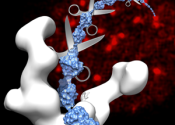Researchers uncover significant reason older adults are at greater risk of heart attack
A team of researchers at the University of South Florida Department of Surgery has made a key discovery as to why we become more susceptible to heart disease as we age. The human body, especially the heart, is dependent on ...
Dec 3, 2020
0
6







